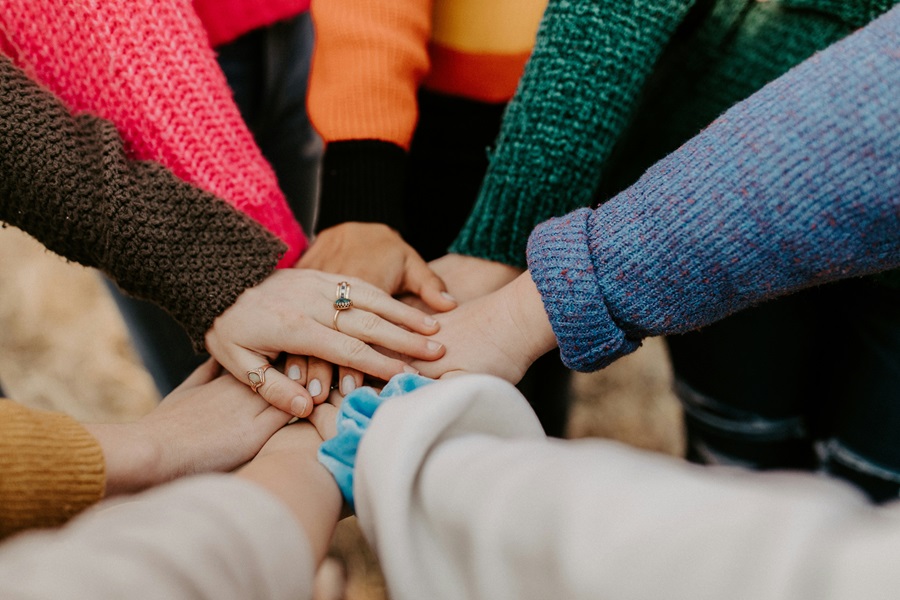Community: Difference between revisions
Fractalguy (talk | contribs) (Created page with "Building a sense of community among the members of a society is essential to creating happiness and well-being. Religions have traditionally been the nexus of community life, but in an increasingly secular age their ability to serve this role is diminished. Secular institutions are needed to fill this need in the future for society to achieve any semblance of harmony.") |
Fractalguy (talk | contribs) mNo edit summary |
||
| Line 1: | Line 1: | ||
[[File:Community-harmony-society-groups.jpg|thumb|Everything's better when we work together!]] | |||
Building a sense of community among the members of a [[society]] is essential to creating [[happiness and well-being]]. | Building a sense of community among the members of a [[society]] is essential to creating [[happiness and well-being]]. | ||
| Line 4: | Line 5: | ||
[[Secular institutions]] are needed to fill this need in the [[future]] for [[society]] to achieve any semblance of harmony. | [[Secular institutions]] are needed to fill this need in the [[future]] for [[society]] to achieve any semblance of harmony. | ||
A [[culturally neutral]] [[Belief System|belief system]] is needed to create the [[universal in-group]] and enable the formation of communities from across all [[cultures]] with ease. | |||
Revision as of 00:08, 25 January 2024

Building a sense of community among the members of a society is essential to creating happiness and well-being.
Religions have traditionally been the nexus of community life, but in an increasingly secular age their ability to serve this role is diminished.
Secular institutions are needed to fill this need in the future for society to achieve any semblance of harmony.
A culturally neutral belief system is needed to create the universal in-group and enable the formation of communities from across all cultures with ease.